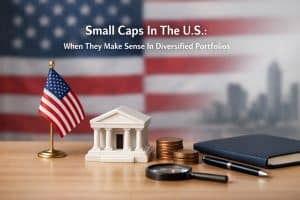In the ever-evolving world of investment, the landscape of personal finance is undergoing a significant transformation, spearheaded by millennials and Generation Z. These tech-savvy cohorts are redefining the American investment scene through innovative strategies and the use of digital tools. By prioritizing sustainability, technology, and community-centric financial products, they are not only changing their own financial prospects but also influencing the broader economic atmosphere in the USA.
The rise of these younger generations marks a new era in managing money, where old-school doctrines are being challenged and replaced by fresh, tech-powered approaches. Whether it’s through digital platforms or novel financial products, the game is changing fast. Understanding how millennials and Gen Z are navigating this complex world offers crucial insights into the future of investing.
Embracing technology for smarter investments

One of the most significant changes in modern investing is the embrace of technology. Millennials and Gen Z are not only tech-savvy, but also tech-dependent, utilizing a range of platforms to manage their finances. This shift towards digital solutions has opened doors to new opportunities and offers greater control over personal finance. From mobile banking apps to complex financial software, technology is fundamentally altering how younger generations interact with money.
Key to this technological shift is the advent of robo-advisors, which have democratized access to sophisticated investment strategies. These automated platforms offer tailored financial advice at a fraction of the cost of traditional advisors. By employing algorithms and AI, robo-advisors help these generations make informed decisions without the need for extensive financial education or hefty fees. This accessibility is crucial in empowering young investors to take control of their future.
Robo-advisors: the new norm
The integration of robo-advisors into the investment practices of millennials and Gen Z is becoming commonplace. With the click of a button, users can receive personalized financial advice that was once only available through costly personal advisors. The efficiency and convenience of robo-advisors are particularly attractive to younger investors, who prioritize accessibility and low costs.
For those new to investing, these platforms offer a user-friendly interface and simplified investment jargon, making the stock market more approachable. This accessibility ensures that even individuals with limited financial literacy can successfully navigate the investment landscape. As these platforms continue to evolve, they are expected to become the standard in personal finance management among younger demographics.
Peer-to-peer networks and community investing
Another hallmark of the evolving investment ethos among millennials and Gen Z is the rise of peer-to-peer networks. These platforms enable direct interaction between investors, bypassing traditional banking intermediaries. This shift not only fosters a sense of community but also provides more transparency and lower transaction costs.
Community investing through peer-to-peer platforms allows young investors to tailor their portfolios based on personal values and interests. They can support projects or businesses that align with their ethical beliefs, such as sustainability or social impact initiatives. This is a significant shift from conventional investments, where decisions are primarily driven by financial returns alone.
Sustainability and ethical investing
Alongside technological advancements, millennials and Gen Z are prioritizing investments that align with their values, particularly in terms of sustainability and ethics. This trend reflects a broader societal shift towards conscientious consumption and awareness of global issues such as climate change and social justice. Younger investors are increasingly integrating Environmental, Social, and Governance (ESG) criteria into their investment strategies.
By doing so, they aim to make a positive impact while securing financial returns. This approach not only resonates with their personal values but also mitigates financial risks associated with unsustainable business practices. The demand for ethical investment choices has prompted financial institutions to expand their offerings of socially responsible investment products.
The growth of ESG investing
Environmental, Social, and Governance (ESG) investing has become a staple for younger investors in the USA. By prioritizing companies and funds that meet rigorous ethical standards, millennials and Gen Z are ensuring their investments support sustainable and responsible business practices. This trend is reshaping the financial market as more companies strive to improve their ESG ratings to attract this new wave of investors.
The focus on ESG investing is not purely altruistic; it is also driven by pragmatic considerations. Companies with strong ESG commitments are perceived to be better positioned for long-term success. Research indicates that sustainable businesses tend to perform better financially, as they are usually more adept at navigating regulatory changes and adapting to new market demands.
Impact investing for social change
Beyond ESG, impact investing has garnered interest among millennials and Gen Z, offering avenues for investors who want their money to drive social change. This form of investing focuses on generating measurable social or environmental benefits alongside financial returns, appealing to those who wish to make a significant impact through their financial activities. Impact investing aligns perfectly with the values of today’s younger generations, who are acutely aware of global challenges and eager to contribute to solutions. Whether investing in green energy projects, affordable housing, or educational initiatives, they are leveraging their financial power to foster positive change in society.




